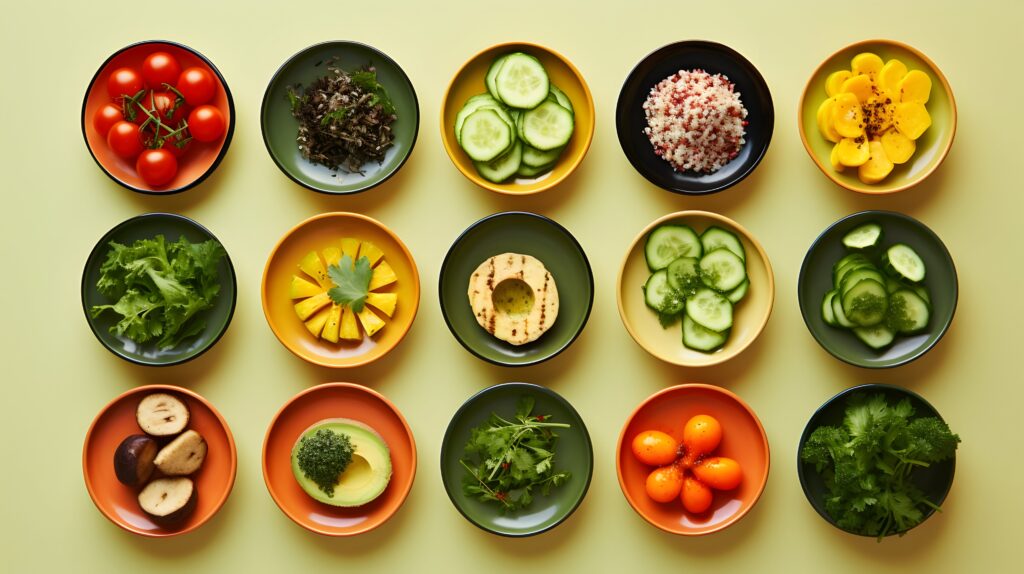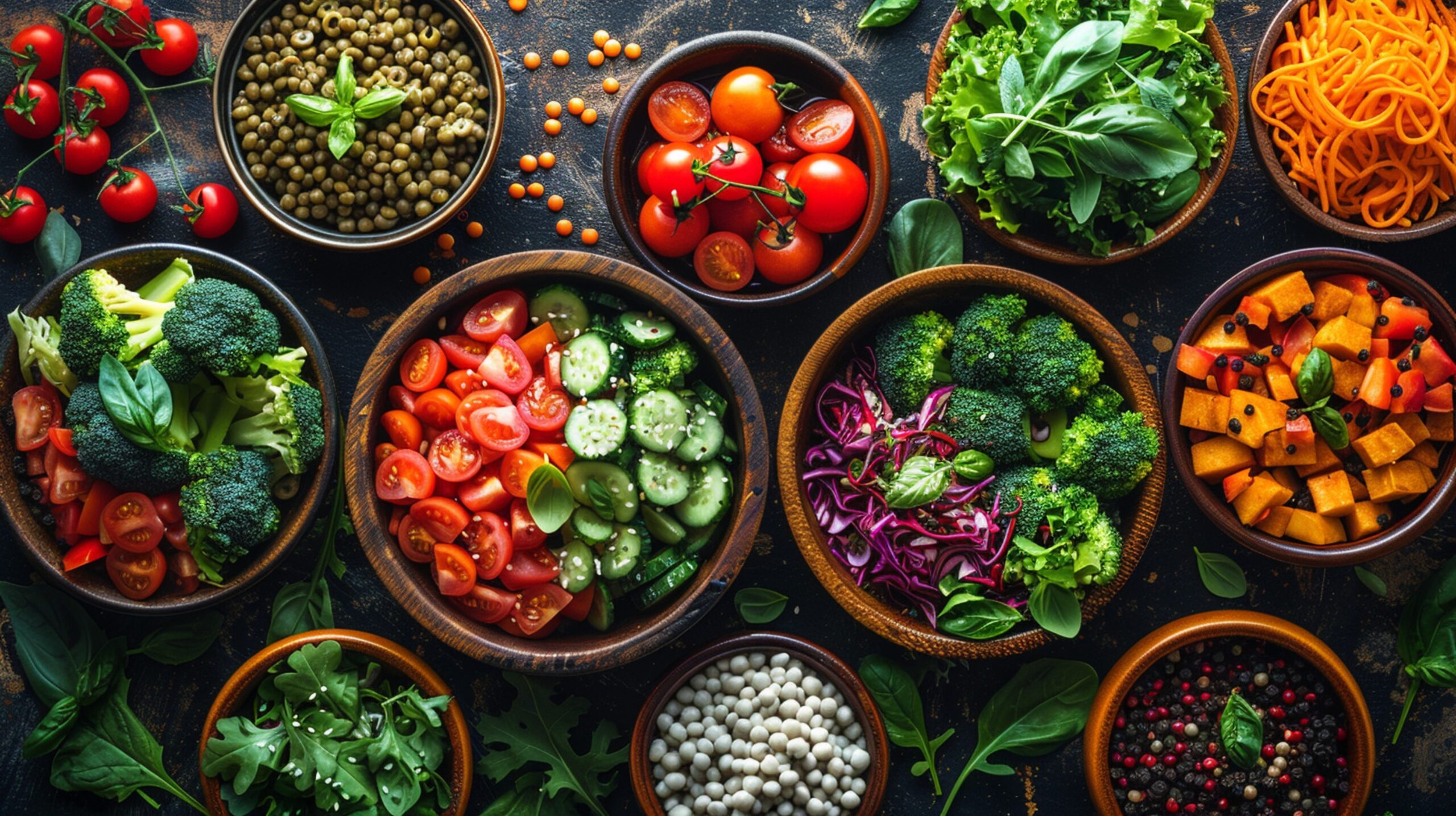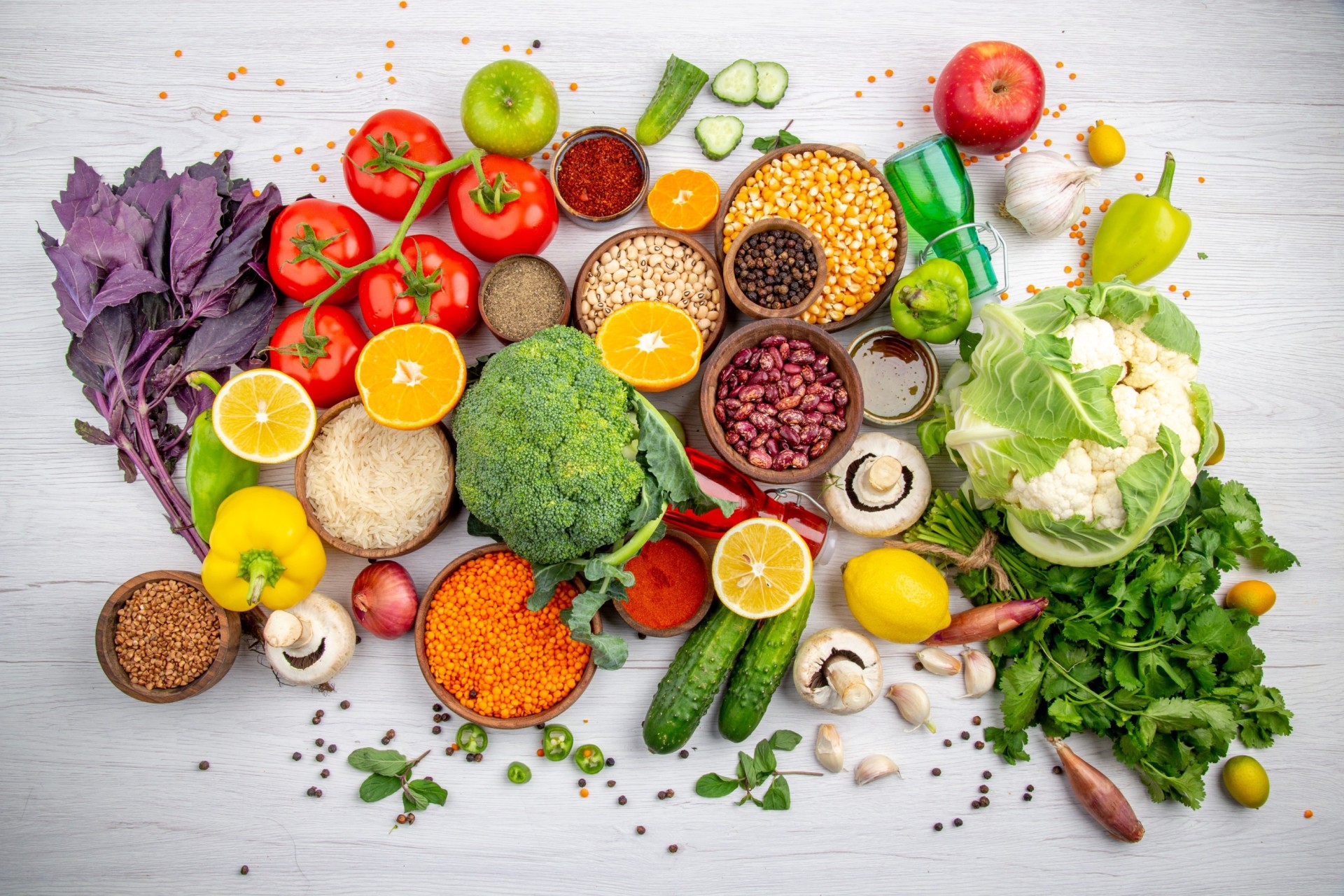Vegans, it’s time to unveil the endless array of probiotic-rich plant foods – because when it comes to gut health, the options are boundless, but it’s all about making the right choices! You have already made an environmentally friendly choice by being a vegan, so let us not let “alleged lack of probiotics in vegan diet” hamper your morals. In recent years, there has been growing interest in probiotics and their role in promoting gut health. Traditionally, dairy products like yogurt and kefir have been touted as rich sources of probiotics. But for you vegans, people with lactose intolerant, vegan, or simply prefer to avoid dairy, incorporating probiotic-rich plant foods into their diet is an excellent alternative. Today let’s explore the diverse array of plant-based foods that naturally contain probiotics and discuss how they can enhance gut health without the need for dairy.
Probiotics are live microorganisms that, when consumed in adequate amounts, confer health benefits to the host. They play a crucial role in maintaining a healthy balance of gut bacteria, supporting digestion, boosting immunity, and even influencing mood and mental health. While dairy products are most commonly associated with probiotics, many plant-based foods also contain these beneficial microorganisms. That is exactly what we’ll be talking about in the next section.
Probiotic-Rich Plant Foods For Vegans

With this list we intend to make life easier for vegans by giving them a horde of probiotic options they can consider as alternatives to dairy based products. So let’s have a look.
1. Fermented Vegetables
Foods like sauerkraut, kimchi, and pickles are fermented using lactic acid bacteria, which naturally produce probiotics during the fermentation process. These tangy and flavorful condiments not only add depth to dishes but also provide a hefty dose of gut-friendly bacteria.
2. Tempeh
Tempeh is a fermented soybean product that originated in Indonesia. It is made by culturing soybeans with a specific type of mold, resulting in a dense, chewy texture and a nutty flavor. Thanks to its fermentation process, tempeh is rich in probiotics and protein, making it a nutritious addition to plant-based diets.
3. Miso
Miso is a traditional Japanese seasoning made from fermented soybeans, rice, or barley. It is commonly used to make soup broth, dressings, and marinades. Miso contains a variety of probiotic strains and adds a savory umami flavor to dishes.
4. Fermented Beverages
Non-dairy fermented beverages like kombucha and water kefir are gaining popularity for their probiotic content. Kombucha is made by fermenting sweetened tea with a symbiotic culture of bacteria and yeast (SCOBY), while water kefir is fermented using water, sugar, and kefir grains. These fizzy, tangy drinks offer a refreshing way to boost probiotic intake.
5. Cultured Soy Products
Certain cultured soy products, such as natto and tempeh, contain probiotics due to the fermentation process. Natto, a traditional Japanese dish made from fermented soybeans, is known for its strong flavor and sticky texture. While it may be an acquired taste for some, natto is a potent source of probiotics and nutrients.
6. Kvass
Kvass is a traditional fermented beverage originating from Eastern Europe. It is typically made from rye bread, beets, or other grains and vegetables. Kvass contains beneficial probiotic bacteria and is known for its slightly sour flavor.
7. Fermented Soy Sauce
Fermented soy sauce, particularly the traditionally brewed variety, contains beneficial probiotics. This savory condiment is commonly used in Asian cuisine to add depth of flavor to dishes.
8. Coconut Yogurt
Coconut yogurt is a dairy-free alternative to traditional yogurt made from coconut milk. When fortified with probiotic cultures, coconut yogurt offers the same gut health benefits as dairy-based yogurt while catering to those with lactose intolerance or dairy allergies.
9. Fermented Cabbage Juice
Fermented cabbage juice, also known as cabbage rejuvelac, is made by fermenting chopped cabbage in water. This tangy beverage is rich in probiotics and enzymes, making it a popular choice for promoting digestive health.
10. Fermented Salsa
Fermented salsa is a zesty and probiotic-rich twist on traditional salsa. By fermenting ingredients like tomatoes, onions, peppers, and herbs, you can create a flavorful condiment that not only enhances the taste of your dishes but also supports gut health.
Now let your gut do the talking with these probiotic-packed plant foods, proving that vegan options are not just better for the environment but can also be the delicious key to a flourishing digestive garden. From tangy fermented vegetables to savory miso soup, there are plenty of options to explore. By embracing these probiotic-packed plant foods, you can nourish your gut microbiota and enjoy a diverse and flavorful culinary experience. So, plant your fork and nourish your gut – the vegan way!”
REFERENCES
1. Medical News Today – https://www.medicalnewstoday.com/articles/323139
2. TofuBud – https://tofubud.com/blogs/tips/vegan-probiotics
3. Ecowiser – https://wiser.eco/vegan-probiotic-foods/
4. Healthy – https://www.healthline.com/nutrition/11-super-healthy-probiotic-foods
5. New Medical – https://www.news-medical.net/news/20190502/Vegans-are-often-deficient-in-these-four-nutrients.aspx
6. Food Insight – https://foodinsight.org/6-nutrients-vegans-might-not-be-getting-enough-of/
FAQ’s
Q: Is there a dairy-free probiotic?
A: Yes, there are dairy-free probiotics available, often derived from plant-based sources like fermented vegetables or supplements made from bacteria strains cultured in non-dairy mediums.
Q: How can I improve my gut health without dairy?
A: Focus on consuming probiotic-rich plant foods such as sauerkraut, kimchi, tempeh, kombucha, and miso. These foods provide beneficial bacteria to support gut health without relying on dairy products.
Q: Where do vegans get probiotics?
A: Vegans can obtain probiotics from fermented plant-based foods like vegan yogurt, kefir, kimchi, tempeh, miso, and kombucha, or by taking probiotic supplements specifically formulated without dairy ingredients.
Q: What are the 3 superfoods for your gut?
A: Three superfoods for gut health include fermented foods like sauerkraut and kimchi, fiber-rich fruits and vegetables, and omega-3 fatty acid sources such as flaxseeds and chia seeds.
Q: What fruit has probiotics?
A: While fruits themselves do not contain probiotics, some fruits like bananas, apples, and berries contain prebiotic fibers that promote the growth of beneficial gut bacteria.
Q: What 4 nutrients are vegans likely to miss?
A: Vegans may be at risk of insufficient intake of vitamin B12, vitamin D, omega-3 fatty acids, and calcium due to the absence of animal-derived foods in their diet.
Q: How do vegans get calcium?
A: Vegans can obtain calcium from plant-based sources such as fortified non-dairy milk, tofu, tempeh, leafy greens like kale and collard greens, almonds, and sesame seeds, or by taking calcium supplements if needed.

